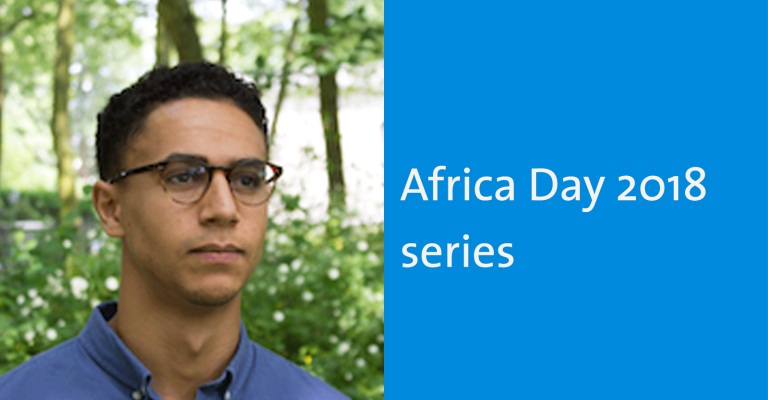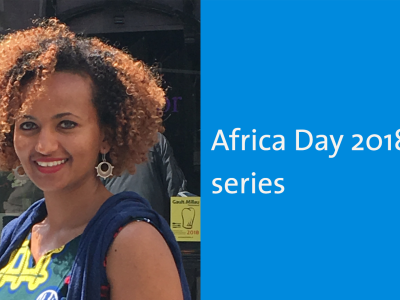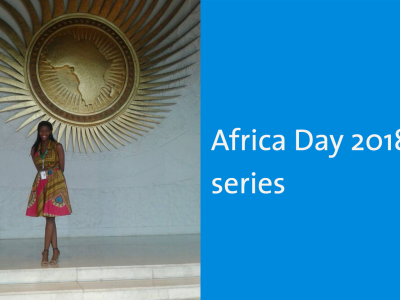
What does it really mean to be pan-African in the 21st century?
In the third and last blog of our series inspired by and dedicated to Africa Day, which marks the anniversary of the creation of the African Union, Dalil Djinnit shares his wish for the African continent to make use of its true potential.
For each and every individual, identity is intimately linked to personal experiences. Those experiences are usually very nuanced and complex, and can by no means be standardised. Here, I share my own.
My story will not speak to everyone, but it gave me the opportunity and the privilege of understanding what it means to be pan-African, and it allowed me to believe in the strengths and potentials of African unity be it economical, political or cultural.
I come from two African countries, Algeria and Ethiopia. Born and raised in Addis Ababa, I spent my adolescence in Dakar. Having different nationalities and several places to call home makes me feel African first but, at the same time, Algerian and Ethiopian, implying that all my identities are not mutually exclusive.
Pan-Africanism has been more prevalent and discussed among educated Africans of the upper-middle class. It is, however, very common to see how, when travelling in different African countries, many young people relate to the concepts of African identity and unity.
Africa is an immensely culturally diverse continent from north to south and from west to east and, yet, it has managed to show that it can manage to unite against common challenges as it was the case during the establishment of the Organisation of African Unity, when Ethiopian-led efforts managed to bring together the Monrovia and Casablanca group.
Current and past leaders shared the great challenge of tackling poverty, developing our nations and maintaining our unity. The leaders of tomorrow will inherit the same fight. Will they manage to create stronger economies, greater integration and stronger institutions that protect the right of their people?
Unity could help them in this challenge and, as an unconditional optimist, I have no doubt that Africa’s future is bright – regardless of the formidable setbacks and challenges the continent faces.
What’s to be done?
Africa’s leaders – and especially its youth – should capitalise on the current digital era that has brought the pan-African narrative to a wider audience, and the African unity closer, by using this platform to engage in debates. And it should also foster links through social media to engage in continental cultural exchanges through travels – for example with the famous Instagram page ‘visiter l’Afrique’.
Through the increasing access to the internet and to global information, young Africans have been able to be more aware of their political, cultural and economic environment.
21st century pan-Africanism should make use of this age of information to advocate strongly for the repatriation of looted African cultural property, now permanently displayed in many museums around the world. This way, the African youth will have the opportunity to reconnect with its history and culture.
The AU and its member states should also be more purposeful in using the potential of their diaspora to participate in the development of the continent and its well-being. The diaspora is not only about remittances, but a chance for the continent to benefit from the talent, the expertise and exposure it brings.
Africa also has the responsibility to seize the unique opportunity of having a growing young population. They are the continent’s biggest asset to tackle the many challenges ahead.
Leaders must therefore invest in youth education, establish fruitful exchanges among African universities and make sure to counter the brain drain that is impacting the continents ability to use its human resources. African governments should tackle this issue by providing opportunities for young individuals with high potential.
Above all, Africa must look inward to find African solutions to African problems.
In my view, it is more a question of ownership and shared responsibility among African countries to try to be as self-reliant as possible. The past decade has proven that the concerns of the African youth have shifted towards a greater expectation for economic development and democracy. They are fed up with seeing authoritarian leaders using pan-Africanist rhetoric for their own benefit and to cling to power.
African leaders need to be more responsible, accountable and need to cooperate as much as possible with each other for solutions that could be managed at continental level.
This implies focusing on increasing continental dialogue (perhaps through reinforcing the legal, political and financial capabilities of the AU), increasing intra-African trade, building strong partnerships and making use of local resources to tackle common problems. A good example of such cooperative gesture can be seen in Algeria’s decision, back in 2013, to cancel the debt of several African countries.
The fact that there is a higher degree of cooperation and solidarity between African countries on issues that are mutually beneficial and interdependent is a proof that, in certain areas, the situation is changing and solutions are found through regional and continental consultations.
This being said, Africa should also make use of the diversity of actors and partners it can engage with for the development of the continent. The increasing amount of actors with a vested interest in the continent gives African countries a more diverse pool of partners to work with on the areas of development, education, industrialisation, security and so on.
Finally, my wish for pan-Africanism is that it truly succeeds in advocating and making sure that the wealth of the continent will be used for the benefit and the development of the African continent and all its people.
The views are those of the author and not necessarily those of ECDPM.
Africa Day series



